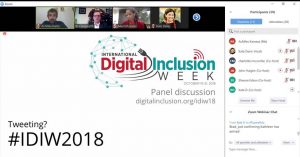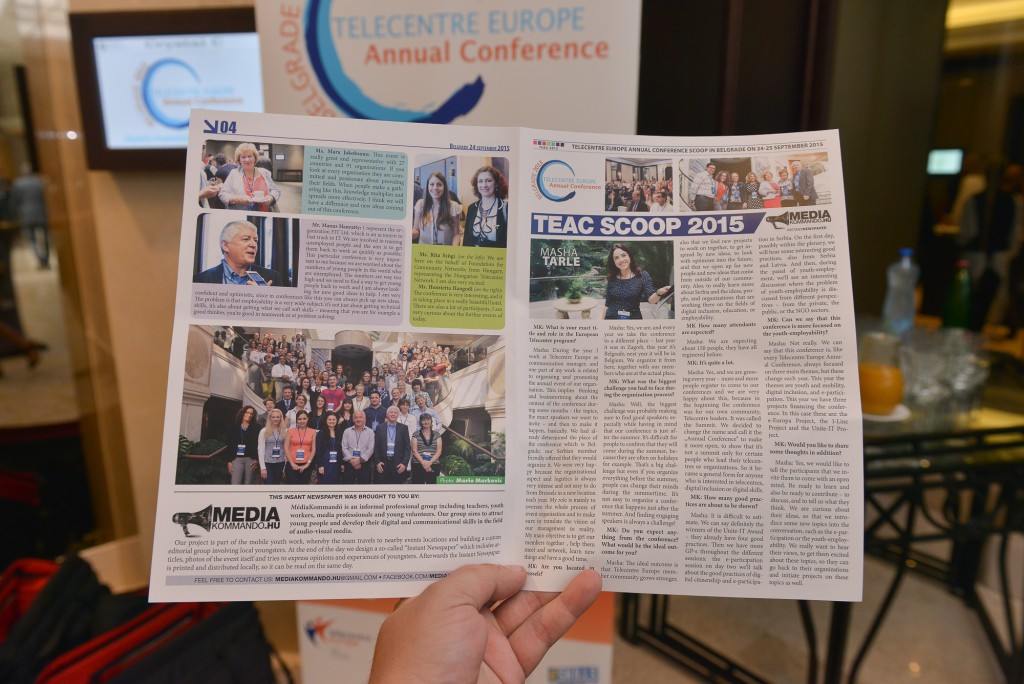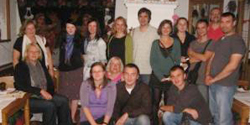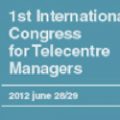17 Oct ALL DIGITAL at the International Digital Inclusion Week 2018
17 Oct, 2018
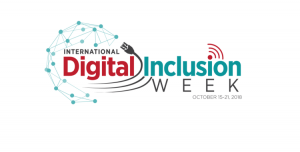 In an effort to increase digital equity awareness globally, the US National Digital Inclusion Alliance and the Australian Digital Inclusion Alliance co-organized International Digital Inclusion Week (IDIW) on 15-21 October, 2018. IDIW2018 aimed to increase awareness and commitment to digital inclusion, create opportunities for national focus, promote international engagement and learning, and act as a catalyst to build an enduring coalition of national digital inclusion alliances and international efforts to create global momentum towards a fully digitally included world.
In an effort to increase digital equity awareness globally, the US National Digital Inclusion Alliance and the Australian Digital Inclusion Alliance co-organized International Digital Inclusion Week (IDIW) on 15-21 October, 2018. IDIW2018 aimed to increase awareness and commitment to digital inclusion, create opportunities for national focus, promote international engagement and learning, and act as a catalyst to build an enduring coalition of national digital inclusion alliances and international efforts to create global momentum towards a fully digitally included world.
On 15 October, IDIW 2018 included an online panel discussion, organised in partnership with the Australian Digital Inclusion Alliance, ALL DIGITAL (Europe), and ALL DIGITAL member Good Things Foundation (UK). The four panelists represented a variety of digital inclusion activities and came from different continents:
- USA – Munirih Jester, San Antonio Housing Authority
- Australia – Kathleen Smeaton, University of Queensland Library
- UK – Nicola Dean, Starting Point Community Learning Partnership, Stockport
- Greece – Achilles Kameas, Deputy Chair of the ALL DIGITAL Board; Hellenic Open University
The panel highlighted our similarities, challenges and differences, and offered the opportunity for international information exchange. Among the topics discussed by the panelists were:
- What do you see as the barriers to an individual’s full participation on the digital world?
- What is the most powerful thing you have learned that influences how you work in a practical way?
- How do you involve community members in creating programs?
- How do you know your programs are having the desired impact?
- How have you cooperated or collaborated to improve inclusion and what makes that cooperation worthwhile?
- What do you think could be done through international collaboration that could make a difference to digital inclusion?
- Share a best practice – what has worked really well?
The discussion was attended by more than 50 online participants, who posed interesting questions on issues related to digital inclusion. The organizers aim at sustaining this dialogue at international level by organizing more similar events in the future.
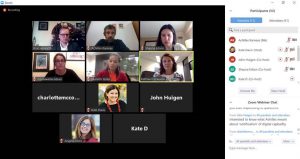
Achilles presented the ALL DIGITAL European network of providers of digital skills training, highlighting its focus on enhancing the digital skills of European citizens and identifying some of its activities, such as support the adoption of digital skills frameworks (such as #DigComp), organizing the European ALL DIGITAL Week, supporting the establishment of National Digital Skills and Jobs coalitions in European countries, producing policy papers, organizing consultation events and implementing projects on digital skills that have Europe-wide impact, such as DCDS. Achilles mentioned that in ALL DIGITAL, we adopt an inclusive strategy in the design our training programs. Initially, we involve community members in the piloting phase of the projects; thus we receive their evaluation of the proposed training programme and only after that we create the final version of the programme that we offer.
In the context of best practice, Achilles presented our DCDS (Digital Competences Development System) project as a good practice of designing and developing a common European framework for the certification of digital skills, a topic of great interest around the world, because it can lead to universal recognition of digital skills and global mobility; both are important steps towards achieving digital inclusion at international level.
Among the barriers to an individual’s access to the digital society, Achilles mentioned
- the lack of digital competences and ways to develop, to integrate into everyday and professional practice, and to certify them,
- the lack of infrastructure in public spaces and organizations,
- the lack of digital services and procedures supported by technology (e.g. e-government) and
- the lack of understanding of the capacity and properties of digital technologies.
Digital technology changes very fast, therefore digital competences must be maintained and upgraded, while in some countries or areas there is no easy way to access digital technology or comprehend digital services (e.g. technology too expensive, services complicated). Inclusive policies must be designed and implemented, especially for vulnerable groups that do not present financial interest could be easily excluded. According to Achilles, access to digital world should be a commodity like access to water or electricity.
Based on his experience after years of designing and implementing training programs on digital skills, Achilles emphasized that a huge investment should be made on the professional development of teachers and trainers, because the success of digital inclusion activities depends on them. Collaborative efforts always have greater impact than solitary efforts and for this reason discussion and mutual compromise could drive the effort forward. In addition to bottom-up activities, top-down systematic activities should be funded (for example, new occupational profiles, standardization frameworks etc). The combined impact of such actions can exceed by far the topical activities.
Finally, Achilles proposed to set up international collaboration activities that could make a difference to digital inclusion worldwide, such as exchange of good practices and ways to transfer them, international digital skills recognition and certification schemes, international occupational profiles taxonomies, exchange of training curricula and content and exchange of experts and trainers, noting that ALL DIGITAL would be happy to lead this endeavor. As a first step, we can mention the networking event “Towards a European certification framework of digital skills” that will take place during ICT2018 Event.
Here is the video of the event
https://www.youtube.com/watch?v=QuEvAUIPg5I&feature=youtu.be%2F


